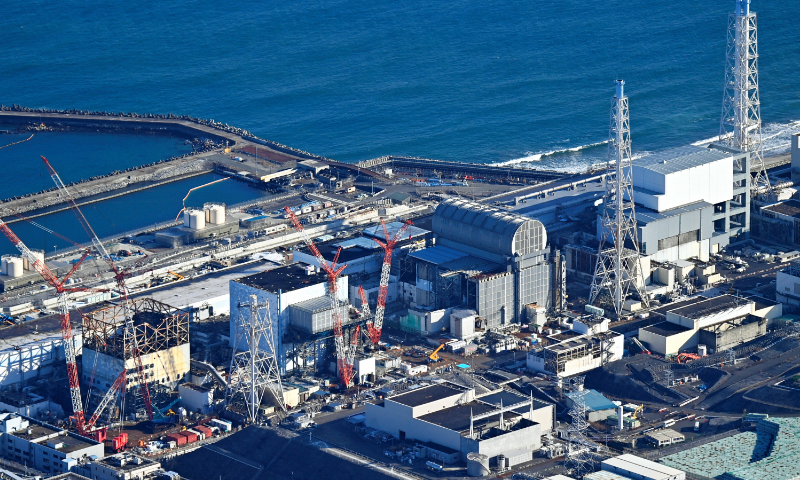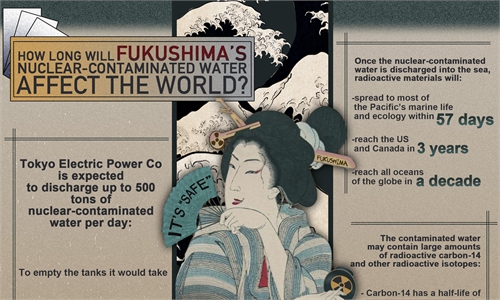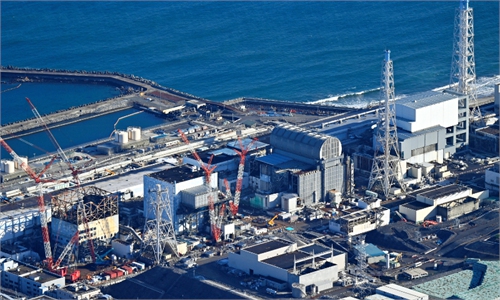Chinese FM repeats grave concern, opposition to Japan’s nuclear-contaminated water dumping plan in response to South Korea’s opposition party’s protest in Japan

Aerial photo shows the damaged reactors at Fukushima Daiichi nuclear power plant on January 19, 2023, in Fukushima, Japan. Photo: VCG
China has expressed grave concerns and opposition for multiple times to Japan's decision to discharge Fukushima's nuclear-contaminated water into the ocean, the Chinese Foreign Ministry spokesperson told the Global Times on Tuesday in response to South Korea's main opposition party's recent protest in Japan.
According to Yonhap News Agency, a group of lawmakers from the main opposition Democratic Party of Korea (DPK) visited Japan last week. They held meetings with municipal lawmakers and residents of the Fukushima area and requested Tokyo Electric Power Co (TEPCO), the operator of the Fukushima plant, share information related to the matter.
DPK lawmakers said on Monday that they conveyed South Koreans' concerns over Tokyo's plan to release radioactive water from the crippled Fukushima nuclear power plant into the sea.
When asked by the Global Times to comment on DPK's concern and the protest rally held by Japanese public, spokesperson Wang Wenbin replied that they were aware of related news reporting.
The Japanese government is extremely irresponsible to choose to simply dump nuclear-contaminated water into the ocean for its own selfish interests and transfer the risks to other countries and international community without fully studying the feasibility of other treatment plans, Wang pointed out.
Japan's crippled Fukushima Daiichi nuclear power plant commenced the operation of equipment needed for its nuclear-contaminated wastewater dumping plan for the first time on March 17 as a prelude to discharging the contaminated water.
In January, the Japanese government announced plans to dump over 1 million tonnes of irradiated water into the Pacific Ocean in spring or summer this year, triggering strong oppositions from within its country, and amongst neighbors, and the international community who urged the Japanese government and TEPCO to stop the plan.
Wang said Japan's plan will cause unforeseen harm to the marine environment and human health as the nuclear-contaminated water contains more than 60 kinds of radioactive nuclides, many of which still lack effective treatment technology. And some long surviving radioactive nuclides may spread with ocean currents and even increase in the total amount due to biomagnification effects.
According to the general international law and United Nations Convention on the Law of the Sea, Japan is obliged to take all measures to avoid environmental pollution and to notify and fully consult with potentially affected countries and guarantee transparency, Wang said.
Wang urged Japan to stop the discharge plan before an agreement is reached among neighboring countries and relevant international institutions.
China, along with Russia, has presented a joint list of technical questions to Japan in November 2022, but Japanese officials have failed to answer either by distorting concepts, evading the crucial items of information or even refusing to discuss the matter.


